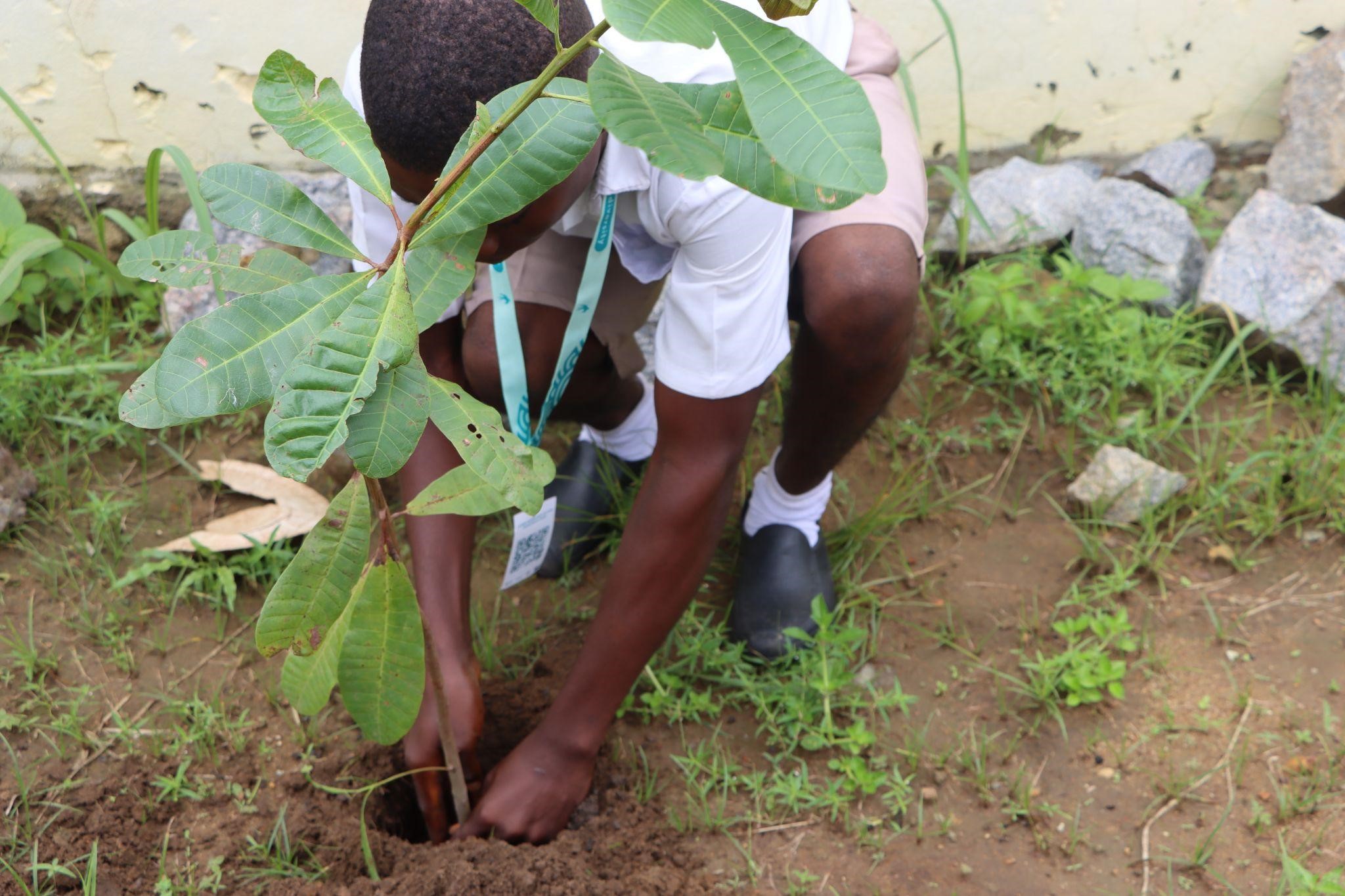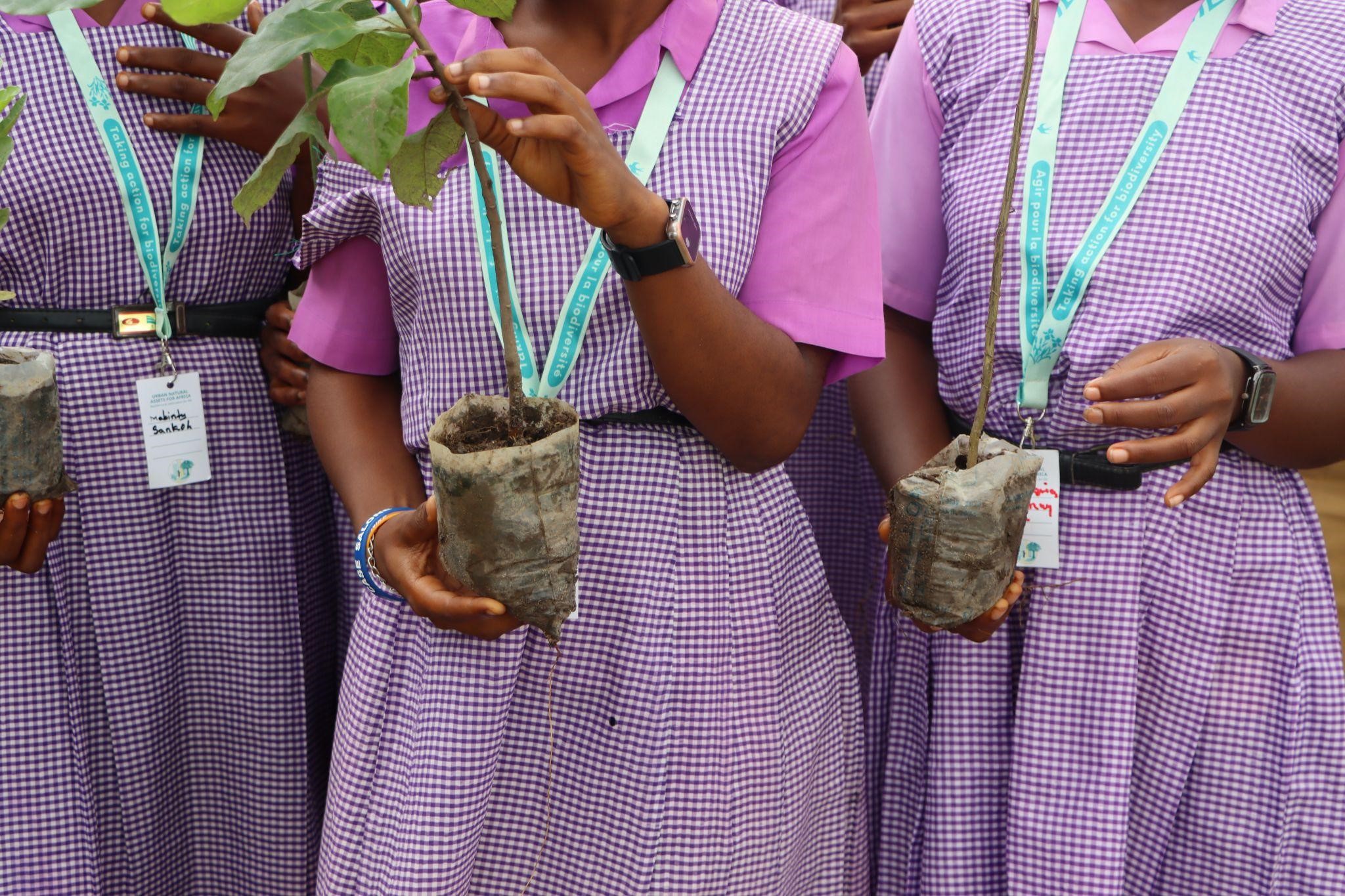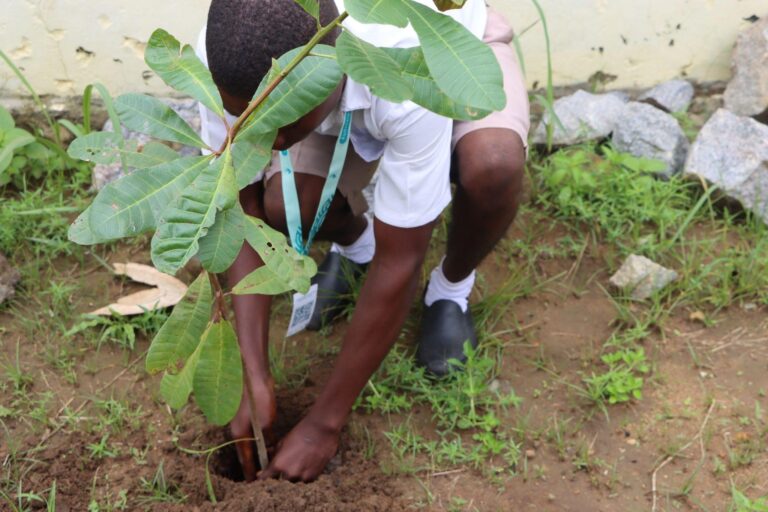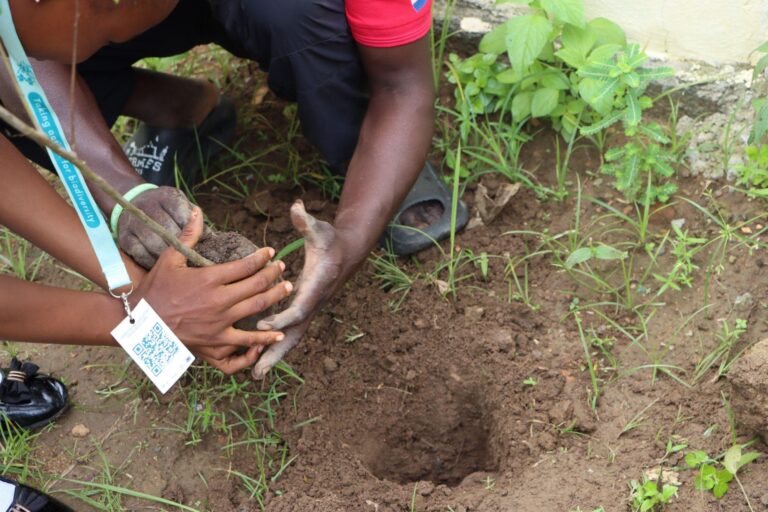14 August 2024
Nature’s lifeline: Young people are shaping sustainable African cities



As urbanisation accelerates across Africa, the challenges posed by climate change become increasingly urgent, highlighting the valuable role that urban natural assets and nature-based solutions (NbS) can play in fostering sustainable urban environments. As we celebrate International Youth Day, it is important to recognise that youth in African cities have inherited compounding crises that they have not caused and to emphasise the strategic and intrinsic value of urban natural assets in addressing these.


The Urban Natural Assets programme, implemented by ICLEI’s Cities Biodiversity Center and funded by SwedBio since 2014, aims to transform development trajectories for African cities towards those that improve sustainable development of, and interconnectedness with, their surrounding natural systems. The current phase of the project, UNA Resilience and Restoration for Life, applies a human rights-based approach that prioritises people-centred and equitable development for all. Youth are facing increasing pressures from climate change and the degradation of surrounding ecosystems that underpin their safety and future livelihoods.
Urban natural assets, such as parks, green spaces, urban forests, and wetlands, are crucial in all cities for several reasons. African cities are no different, with many experiencing high temperatures and air pollution levels, exacerbated by climate change. Urban green spaces help mitigate these effects by acting as carbon sinks and cooling urban areas through shade and transpiration. Furthermore, African cities are often rich in biodiversity, and preserving green spaces helps maintain this natural heritage. These areas provide habitats for various species, contributing to ecological resilience and stability.
In addition to ecological benefits, urban natural assets also improve air quality. Many African urban areas suffer from poor air quality due to vehicle emissions, open waste burning and industrial activities.
Vegetation in green spaces filters pollutants, improving air quality and public health. Another significant benefit is stormwater management. With increasing incidences of extreme weather events, urban wetlands and green infrastructures are vital for effective stormwater management, reducing the risk of flooding and protecting water resources.
Access to green spaces also improves physical and mental health, offering safe spaces for recreation, exercise and community gatherings. This is particularly important in densely populated urban areas where public spaces are limited. Nature-based solutions (NbS) leverage natural processes and ecosystems to address urban challenges. In African cities, these solutions are essential for creating sustainable and resilient urban environments. Incorporating green roofs, green walls, and urban forests helps reduce urban heat, manage stormwater, and enhance the aesthetic appeal of cities. Urban agriculture, such as community gardens and urban farms, increases food security, reduces reliance on imported food, and fosters community engagement and resilience.
Restoring degraded urban ecosystems, such as rivers and wetlands, improves biodiversity, enhances resilience to extreme weather events, and provides essential services like clean water and recreation. Sustainable urban design, integrating NbS into urban planning, promotes multifunctional spaces that support both ecological and human needs, such as walkable neighbourhoods, natural elements in buildings, and preservation of natural landscapes.
A human rights-based approach is crucial in this context. Access to urban natural assets and NbS is a fundamental human right, essential for health, well-being, and sustainable development. In African cities, where many communities face socio-economic challenges, the equitable distribution and accessibility of green spaces and NbS is critical. This approach emphasises equity and inclusion, ensuring that all urban residents, especially marginalised and low-income communities, have access to green spaces and the benefits of NbS. Participation and empowerment are also key, engaging communities in the planning, implementation, and management of urban natural assets and NbS, empowering them to take ownership and responsibility for their environments.
Recognising the direct impact of urban natural assets on public health, policies should prioritise green space development and maintenance in urban planning. Addressing the disproportionate impact of environmental degradation and climate change on vulnerable populations is essential, ensuring that urban natural assets and NbS contribute to a fairer and more just urban environment.
Young people have a critical role to play in the fight against climate change and the promotion of sustainable urban development in Africa. Their engagement, insights around digital innovation and leadership are crucial for several reasons. Many young people are climate activists, raising awareness about the importance of urban natural assets and NbS, and influencing policy changes. Engaging young people in community-based projects fosters a sense of ownership and responsibility, contributing to successful implementation and maintenance of NbS. Young people can bridge generational gaps, combining traditional knowledge with modern approaches to create resilient urban environments.
Youth Day Event in Bo City

The day’s activities were more than just a symbolic gesture; they represented a tangible commitment from the youth to safeguard their city’s future. The students’ engagement—from revisiting past visions of their urban environment to crafting and displaying personal commitments—highlighted a deepening awareness of the vital role they play in preserving urban natural assets. Their reflections, rooted in a genuine connection to nature, emphasised the importance of integrating nature-based solutions in urban planning, especially in the face of growing challenges like climate change and urbanisation. By actively participating in activities such as tree planting, these young leaders are not only contributing to the resilience of their city but also championing a culture of sustainability that is crucial for the well-being of future generations.
The involvement of local authorities, such as the Bo City Council, further underscores the collective effort needed to protect and restore urban ecosystems, making the day a powerful example of how youth can drive meaningful change in their communities.
As we celebrate International Youth Day, it is essential to recognise the strategic importance of urban natural assets and NbS in addressing the urgent challenges posed by climate change in African cities. By adopting a human rights-based approach and engaging young people, we can create resilient, sustainable and equitable urban environments that support both human and ecological health. The intrinsic value of these natural assets enriches our cities, making them vibrant, livable, and thriving hubs of innovation and culture.



